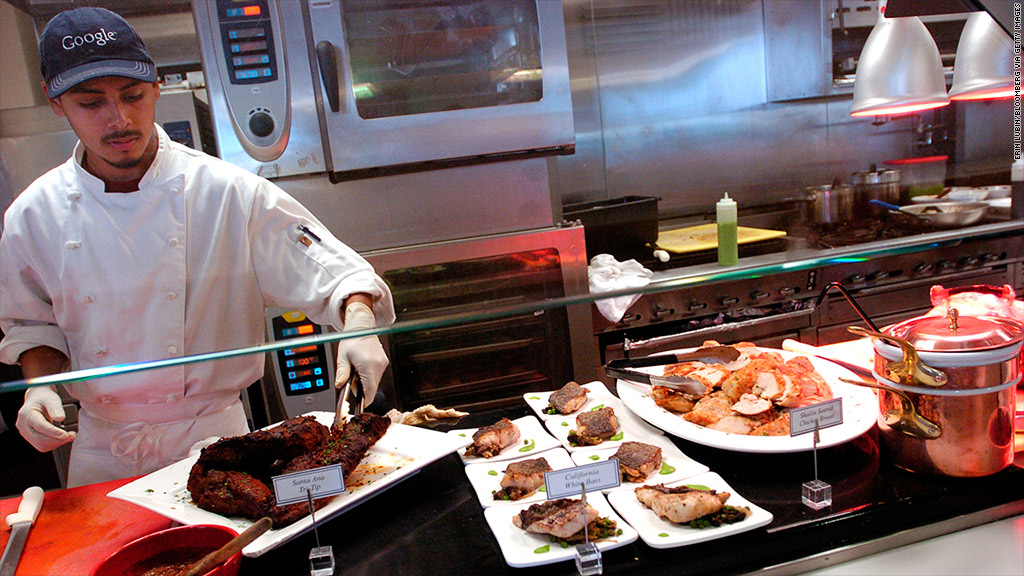
Think about it: When your company gives you a paycheck, you pay taxes on that income. Why not when it pays you in sushi?
That's what the IRS is questioning.
As highlighted in a Wall Street Journal story this week, the IRS is scrutinizing when free employee meals - a daily occurrence at Silicon Valley giants like Google (GOOG), Twitter (TWTR) and Facebook (FB) -- should be a taxable benefit.
In fact, the agency has added the issue of employer-provided meals to its list of top tax priorities for the coming year.
Were the meals to be treated as taxable, the cost of the food would be considered income to the employee. That means the employer would owe its share of payroll tax on that money and the employee would owe income and payroll tax on it as well.
Related: Inside Twitter's cafeteria
So will the increased scrutiny of the IRS mean the end of Silicon Valley's gratis gourmet lunches?
Not necessarily - or at least not anytime soon.
Under today's rules, providing occasional food and beverages to workers -- e.g., free coffee, soda and snacks - is considered a "de minimis" meal and is not considered taxable. Nor are full meals regularly provided on-site, so long as they're served for the "convenience" of the employer.
For instance, a company may provide meals to workers on deadline-driven projects that require long hours and weekends. Or a company may offer free food when the business is located far from restaurants or when lunch hour is the busiest time of day for the company.
In all cases when an employer serves food at work, it can deduct the cost as a business expense.
Should the IRS decide to change its guidance on what is considered a "convenience" for the employer, it could take 9 months to a year to take effect because changing guidance on a tax issue is a multi-layered process, said John W. Roth, senior federal tax analyst for tax publisher Wolters Kluwer, CCH .
Related: How companies shrink their taxes by leaving U.S.
What's more, Roth said, big companies with deep pockets may decide it's worth the money to fight the IRS on this one.
The IRS had no comment on the matter.
It's also possible the agency will get too busy to address the issue this year. Employer-provided meals has to compete with the more than 300 other priorities the IRS has listed -- a lot for an agency that many argue is already underfunded and overburdened.
But the fact that it made the IRS priority list at all may suggest that the agency thinks the issue is low-enough hanging fruit that it justifies the investment, said Christopher Bergin, president and publisher of Tax Analysts.
Related: 7 things you absolutely must know about corporate taxes
Still, it would hardly be the biggest payday around. The cost of companies writing off employee meals and lodging (which encompasses much more than those companies serving free meals every day) is about $2 billion a year, according to a recent estimate from the Joint Committee on Taxation.
Cracking down on the meals exclusion piece of that may be low-hanging fruit, but it's peanuts relative to the estimated $400 billion gap in total tax revenue owed but not paid every year.
"This is a bit like going through garbage cans" to dig up change, Bergin said. Then again, "you've got to start somewhere."
